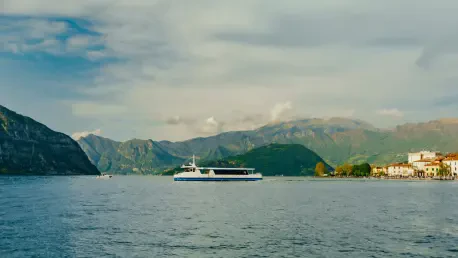Hurricane Melissa tore through Jamaica with unrelenting force, leaving a trail of destruction that has halted one of the Caribbean’s most vital tourism lifelines—its cruise routes, and with key ports like Falmouth and Montego Bay grappling with severe damage, the island’s economy, heavily reliant on cruise arrivals, faces an unprecedented setback. How are major players in the travel industry responding to this crisis, and what can travelers and stakeholders learn from this disruption? This roundup gathers perspectives from industry leaders, travel advisors, and regional analysts to explore the storm’s ripple effects, adaptive measures by cruise lines, and actionable tips for navigating the aftermath. The goal is to provide a comprehensive view of the challenges and potential pathways forward for Jamaica’s tourism sector.
Unveiling the Storm’s Toll on Jamaica’s Tourism Backbone
Hurricane Melissa struck at a critical time, devastating infrastructure in key Jamaican tourism hubs. Ports that typically welcome thousands of cruise passengers daily now stand compromised, with damaged docks and disrupted services. Industry observers note that the economic fallout is profound, as these ports contribute significantly to local livelihoods through direct employment and ancillary businesses like tours and markets.
Beyond the physical wreckage, the storm has shaken confidence among international travelers who view Jamaica as a cornerstone of Caribbean vacations. Analysts from regional tourism boards highlight that the sudden halt in cruise arrivals disrupts not just immediate revenue but also long-term visitor perceptions. This creates a pressing need for strategic communication to reassure markets about recovery efforts.
The discussion around this crisis also points to broader implications for the Caribbean as a whole. Some experts argue that while Jamaica’s plight is severe, it underscores a regional vulnerability to natural disasters. This roundup aims to dissect varying viewpoints on how the industry can balance immediate recovery with building resilience against future storms.
Cruise Line Responses: Adaptation and Responsibility
Royal Caribbean’s Tactical Shifts in Itinerary Planning
Royal Caribbean, a dominant player in Caribbean cruises, quickly rerouted major vessels like Oasis of the Seas and Symphony of the Seas away from Jamaican ports following the hurricane. Industry insiders commend this swift pivot to alternative destinations such as the Dominican Republic, emphasizing that safety protocols necessitated these changes despite passenger disappointment over missing iconic Jamaican stops.
Travel advisors add that while rerouting ensures passenger well-being, it also introduces an opportunity to showcase lesser-visited ports. However, opinions differ on the long-term impact—some believe this could dilute Jamaica’s brand appeal, while others see it as a chance to diversify Caribbean tourism. The consensus leans toward transparent communication with passengers as a critical factor in maintaining trust during such upheavals.
A point of contention remains the balance between operational needs and customer expectations. Feedback from cruise forums suggests mixed reactions, with some travelers frustrated by missed cultural experiences and others appreciating the safety-first approach. This highlights a need for cruise lines to enhance flexibility in their offerings to mitigate dissatisfaction.
Humanitarian Efforts Taking Precedence Over Leisure
In a notable shift, Royal Caribbean’s Rhapsody of the Seas made a relief-only stop in Falmouth, delivering 120 pallets of essential supplies instead of hosting tourists. Industry commentators praise this move as a model of corporate responsibility, showcasing how cruise lines can serve as vital aid conduits during crises. This action has sparked discussions on redefining the role of tourism giants in disaster response.
Regional analysts, however, caution that while such missions are crucial for local communities, they limit access for leisure travelers, potentially impacting short-term revenue. A differing perspective from humanitarian organizations suggests that these efforts could enhance brand loyalty among socially conscious consumers, offering a long-term benefit that outweighs immediate losses.
The duality of purpose—relief versus recreation—has opened a broader dialogue. Some industry voices advocate for formalizing such humanitarian roles within cruise line operations, proposing partnerships with relief agencies. This could set a precedent for how travel companies engage with disaster-affected regions beyond profit motives.
Broader Travel Sector Disruptions and Adjustments
Hurricane Melissa’s wrath extended well beyond cruise lines, affecting airlines and resorts across Jamaica. Major carriers like American Airlines and Delta faced operational challenges at Sangster International Airport, leading to widespread flight cancellations. Hospitality experts note that resort closures in areas like Negril have compounded the crisis, leaving travelers scrambling for alternatives.
Opinions vary on the recovery trajectory for these sectors. While some travel consultants predict a swift rebound with targeted infrastructure repairs, others warn of lingering delays due to the scale of damage. A common thread among analysts is the potential shift of tourist interest to other Caribbean destinations, which could reshape regional travel patterns if Jamaica’s recovery stalls.
This situation has also prompted a reevaluation of risk management in the travel industry. Advisors stress the importance of cross-sector collaboration to streamline recovery, suggesting that airlines and hotels emulate cruise lines’ adaptability. Differing views exist on whether such coordination is feasible under tight timelines, but the urgency for a unified approach is widely acknowledged.
Market Reactions and Traveler Implications
Global Traveler Responses Across Key Demographics
The storm’s impact on Jamaica has reverberated through major tourist markets like the United States, Canada, and the United Kingdom. Travel agencies report a surge in canceled cruise bookings from American travelers, many of whom are opting for refunds over rebooking. This contrasts with Canadian trends, where rebooking with carriers like Air Canada to alternative destinations appears more common.
Analysts observing the U.K. market note a similar pivot, with airlines offering flexible rescheduling options to other Caribbean locales. However, opinions diverge on long-term effects—some predict a temporary dip in Jamaica’s appeal, while others believe this could spur curiosity about under-the-radar spots. The disparity in response highlights cultural differences in travel planning and risk tolerance among these demographics.
A shared concern across markets is the financial strain from unexpected changes. Industry voices urge travelers to leverage travel insurance as a buffer against such disruptions. This advice, though widely endorsed, meets skepticism from some who argue that insurance policies often fall short of covering comprehensive losses, pointing to a gap in consumer protection that needs addressing.
Opportunities Amidst the Chaos: Alternative Destinations
Not all perspectives frame the disruption as a setback. Some travel influencers and advisors suggest that the rerouting of cruises and flights could spotlight lesser-known Caribbean gems, redistributing tourist traffic more evenly across the region. This view sees potential for economic boosts in areas previously overshadowed by Jamaica’s prominence.
Contrasting opinions warn of logistical challenges in promoting these alternatives, citing insufficient infrastructure in smaller destinations to handle sudden influxes. Regional tourism boards counter this by advocating for strategic investments to prepare these locales, presenting the crisis as a catalyst for broader development. The debate underscores a tension between immediate needs and long-term planning.
Ultimately, the shift toward alternative destinations prompts a rethinking of travel marketing. Experts recommend that cruise lines and tourism agencies craft narratives around discovery and adventure to entice travelers. This approach, while promising, requires careful execution to avoid alienating those still drawn to Jamaica’s unique cultural offerings, maintaining a delicate balance in messaging.
Lessons Learned and Practical Tips for Stakeholders
Hurricane Melissa has delivered critical lessons for the travel industry, with industry leaders emphasizing adaptability as a cornerstone of crisis management. Royal Caribbean’s dual focus on safety through rerouting and compassion via relief missions sets a benchmark for operational and ethical responses. This balance is seen as a blueprint for navigating future natural disasters.
For travelers, practical advice abounds from various sources. Travel consultants strongly recommend investing in comprehensive travel insurance to safeguard against unforeseen cancellations. Additionally, maintaining direct communication with cruise lines, airlines, and hotels is deemed essential for real-time updates on itinerary changes or recovery progress in affected areas.
Cruise lines and other travel providers are encouraged to adopt flexible itineraries as a standard practice, allowing for rapid adjustments without compromising passenger experience. Some industry analysts also suggest creating contingency funds dedicated to humanitarian efforts, enhancing their capacity to support communities in crisis. These actionable insights aim to transform challenges into opportunities for growth and responsibility.
Reflecting on Resilience and Next Steps
Looking back, Hurricane Melissa challenged Jamaica’s tourism framework in profound ways, testing the adaptability of cruise lines, airlines, and hospitality providers. The collective response, marked by strategic rerouting and humanitarian aid, showcased an industry capable of pivoting under pressure. Diverse perspectives from industry insiders and travel advisors illuminated both the immediate hurdles and the potential for innovation in recovery.
Moving forward, stakeholders must prioritize rebuilding trust through transparent updates on Jamaica’s restoration efforts. Travelers should consider supporting the island’s comeback by staying informed about reopenings and exploring flexible travel options. For the industry, investing in sustainable infrastructure and forging stronger regional partnerships will be key to mitigating future disruptions. This crisis, while daunting, opened a window to reimagine Caribbean tourism with resilience and community at its core.









